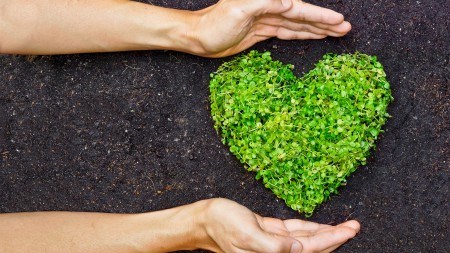With the unforeseen and subsequent chaos COVID-19 is spreading across the globe, perhaps now is the time to challenge some of our mindsets and show ourselves and the planet how much we care.
Vegan. Planet-conscious. Most may hear these words and cringe. Others may roll their eyes. No matter what your thoughts are, there is no doubting the substantial amount of good adopting a vegan - or planet-conscious approach if you’d prefer - can do. Furthermore, one cannot dispute that the interest in veganism is on the rise with over 900,000 participants signing up for Veganuary since its inception in 2014. While most people understand veganism to mean not consuming any animal products come mealtime, did you know that practicing veganism can extend into your home and lifestyle choices as well? If you aren’t fully clued up on what such choices could be but are interested in finding out more, take a look at our essentials for adopting a more vegan or planet-conscious mindset:
- DO YOUR HOMEWORK
As is the case with trying anything new in life, going vegan at home should start with some upfront research and prior understanding of what a vegan is and what this belief entails. Take the time to read up about or watch how certain household products are made as well as what their overall toll on the planet is. This will also most definitely open your eyes up to the many benefits of going vegan, so take full advantage of the internet and find the valuable knowledge, support, and advice you need to help you during your transition.
Similarly, learn to read labels and familiarise yourself with what’s actually inside what you’re putting into your trolley. Most vegan products will be labelled as such so be on the lookout for products that have the “Certified Vegan” logo, the “Coalition for Consumer Information on Cosmetics” (CCIC) leaping bunny logo, or PETA’s cruelty-free bunny logo. If the product does not contain these logos but is labelled vegan, always be sure to doublecheck the ingredients and do a quick search online for any ingredients or brands you aren’t sure of, just to be safe.
- PREPARE TO LET GO
Perhaps one of the hardest parts of making a change is letting go of the old in order to usher in the new. Chances are, your home will contain some non-vegan items such as leather furniture, silk bedding or accessories, woollen blankets, and even beeswax candles. If you know these items need to go, then you don’t need to be told why! That said, you should be aware that even if some products claim to be the by-products of the meat industry (like some wool or suede brands, for example), this might not always be entirely true so again, if you’re serious, do your research. Where possible, rather make use of more vegan-friendly home essentials made from cotton or synthetic materials such as faux leather or synthetic wool.
- RESPONSIBLY DISPOSE OF NON-VEGAN PRODUCTS
After realising what you do or don’t need to remove or replace, consider the options as to how you can responsibly do so. You can opt to hang onto certain items until they are worn out or break before replacing them with vegan alternatives. That said, opt to donate or sell non-vegan items rather than throwing them away because you feel guilty. Remember that while you might have made the choice to not want to use something anymore, for some it may be a case of desperately needing to use that same something to survive, so don’t just throw out what you don’t want. Some charities, for example, will sell donated items to raise funds for the poor or underprivileged while others will donate any unwanted items to those in need of them.
- MAKE SMALL CHANGES
If you’re keen to make the transitioning process slow and steady (as opposed to the “all-in” approach above!) there are small changes you can make before slowly stepping things up. A good place to start is in the cleaning department. Surprisingly, some household cleaners are not environmentally friendly or cruelty-free so be sure to read the label before purchasing as mentioned earlier. You can take things one step further though by making your own cleaning products using natural ingredients. Lemon juice, for example, is a superb natural disinfectant while baking powder and vinegar make a great multi-purpose cleaning paste. Other small changes you can make include adopting more rigorous practices for reducing household waste or opting to use more natural alternatives in your home, such as using plants as air purifiers.
Transitioning towards a vegan or planet-conscious home can seem like an incredibly overwhelming task, but the good news is that it doesn’t have to be! Armed with the right attitude and some good ol’ fashioned research, “going vegan” in your home can be a pretty smooth process. Remember, the aim is not perfection. Every little change counts, so even simply cutting down on your consumption of non-vegan products is a positive step in the right direction. So, take the plunge. We guarantee that you – as well as the planet – won’t regret it.




